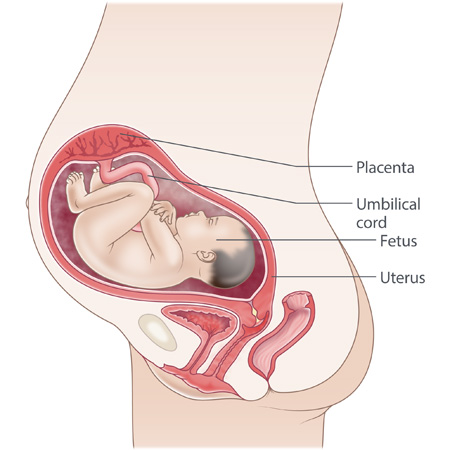
Pregnancy at 30 Weeks: A Comprehensive Guide
Introduction
Pregnancy is an incredible journey filled with both anticipation and uncertainty. As you approach the third trimester, your body and baby undergo significant changes. Week 30 marks a pivotal stage in your pregnancy, bringing you closer to meeting your little one. This comprehensive guide will provide you with detailed information about the physical, emotional, and fetal developments during this crucial week.
Physical Changes
- Increased Belly Size: Your uterus continues to expand rapidly, pushing your belly forward and making it more noticeable.
- Weight Gain: You may gain about 1-2 pounds per week during this time.
- Swelling: Fluid retention can cause swelling in your hands, feet, and ankles.
- Stretch Marks: As your skin stretches to accommodate the growing baby, stretch marks may appear on your abdomen, thighs, and breasts.
- Constipation: Hormonal changes and pressure from the uterus can lead to constipation.
- Hemorrhoids: Increased blood flow to the pelvic area can cause hemorrhoids, which are swollen veins in the rectum.
- Frequent Urination: The growing uterus puts pressure on your bladder, leading to more frequent trips to the bathroom.
- Backaches: The weight of your belly can strain your back, causing discomfort.
- Varicose Veins: Hormonal changes and increased blood flow can cause varicose veins, which are enlarged and twisted veins.
Emotional Changes
- Mood Swings: Fluctuating hormone levels can trigger mood swings, making you feel happy, sad, or anxious at different times.
- Increased Energy: Many women experience a surge of energy during this time, known as "nesting."
- Anxiety: As you get closer to delivery, it’s normal to feel anxious about the birth and the responsibilities of parenthood.
- Excitement: The anticipation of meeting your baby can fill you with excitement and joy.
Fetal Development
- Size and Weight: Your baby is about 16 inches long and weighs approximately 3 pounds.
- Organs: The baby’s organs are fully formed and functioning, including the brain, heart, lungs, and kidneys.
- Bones: The baby’s bones are hardening, but they are still soft and flexible.
- Skin: The baby’s skin is covered in a protective layer called vernix caseosa, which helps regulate body temperature.
- Hair: The baby may have a fine layer of hair on its head.
- Movement: You will likely feel the baby moving frequently as it grows stronger.
- Hearing: The baby can hear sounds from outside the womb, including your voice and music.
- Vision: The baby’s eyes are developing rapidly, but they are still unable to focus clearly.
Prenatal Care
- Regular Checkups: Continue to attend regular prenatal appointments to monitor your health and the baby’s growth.
- Blood Pressure Monitoring: Your blood pressure will be checked at each appointment to screen for preeclampsia.
- Weight Check: Your weight gain will be monitored to ensure it is within a healthy range.
- Urine Analysis: A urine sample will be tested for signs of infection or other complications.
- Ultrasound: An ultrasound may be performed to assess the baby’s growth and position.
Lifestyle Modifications
- Nutrition: Eat a healthy diet rich in fruits, vegetables, and whole grains.
- Exercise: Engage in moderate-intensity exercise for at least 30 minutes most days of the week.
- Sleep: Get plenty of rest, aiming for 7-9 hours of sleep per night.
- Avoid Alcohol and Smoking: Alcohol and smoking can harm the baby’s development.
- Limit Caffeine: Excessive caffeine consumption can increase the risk of certain complications.
Common Concerns
- Preeclampsia: A serious condition characterized by high blood pressure and protein in the urine.
- Gestational Diabetes: A type of diabetes that develops during pregnancy.
- Premature Labor: Labor that begins before 37 weeks of gestation.
- Placental Abruption: A condition in which the placenta separates from the uterus.
- Uterine Rupture: A rare but serious complication in which the uterus tears open.
When to Call Your Doctor
Contact your doctor immediately if you experience any of the following symptoms:
- Severe abdominal pain
- Vaginal bleeding
- Persistent vomiting
- Sudden swelling in your face, hands, or feet
- Headache that does not go away
- Blurred vision
- Decreased fetal movement
Conclusion
Week 30 of pregnancy is a significant milestone, bringing you closer to the birth of your child. While this time can be filled with both excitement and challenges, understanding the physical, emotional, and fetal changes can help you navigate this stage with confidence. By following your doctor’s instructions, making healthy lifestyle choices, and addressing any concerns promptly, you can ensure a safe and healthy pregnancy for both you and your baby.